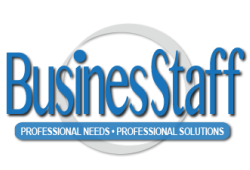Men's Interview Attire
For a professional interview, men can default to wearing a suit. All clothes should fit well and not have any stains. Here are the fundamental items a man wears during a professional interview:
- Suit (solid color - navy, black, or dark grey)
- Long sleeved shirt (white or coordinated with the suit)
- Belt
- Tie (If you haven’t worn one in awhile you may want to practice how to tie it so its not wrapped around you neck as your walking into the interview.
- Dark socks, conservative leather shoes
- Little or no jewelry
- Neat, professional hairstyle
- Limit the aftershave
- Neatly trimmed nails
- Portfolio or briefcase
Here are the fundamental building blocks of what women should wear to professional interviews:
- Suit (navy, black, or dark grey) - make sure the suit's skirt is long enough so you can sit down comfortably
- Coordinated blouse
- Conservative shoes
- Limited jewelry (no dangling earrings or arms full of bracelets)
- No jewelry is better than cheap jewelry
- Professional hairstyle
- Light make-up and perfume
- Neatly manicured clean nails
- Portfolio or briefcase
- Gum
- Coffee or soda, or a breakfast burrito (you get the idea)
- If you have lots of piercings, leave some of your rings at home (earrings only, is a good rule)
- Cover tattoos if possible ( If your sporting tattoos on your face or neck this may be difficult)
- A pack of cigarettes sticking out of your suit pocket.
- Your significant other or a pet.
- Flip Flops or Sneakers.








 RSS Feed
RSS Feed